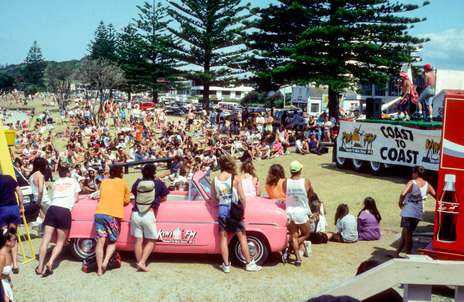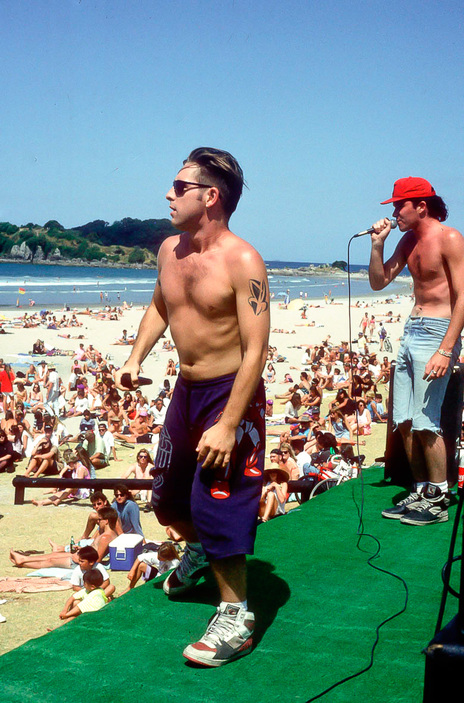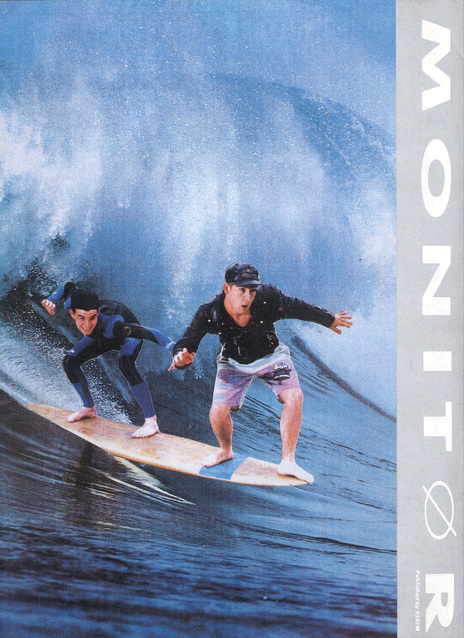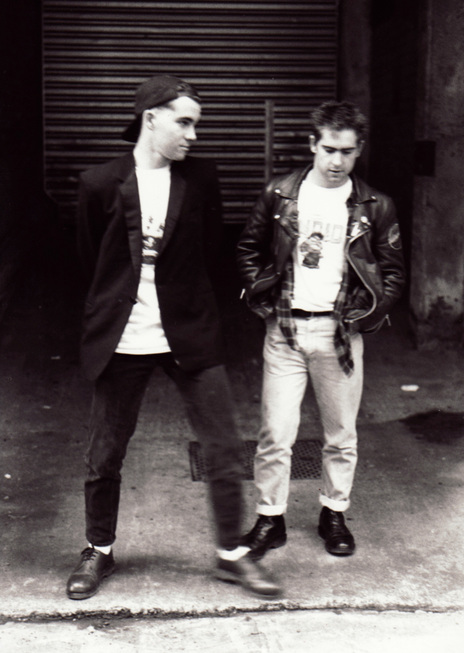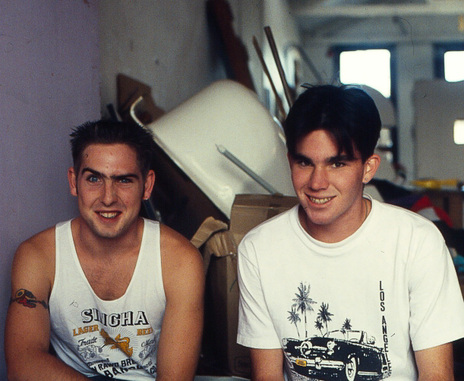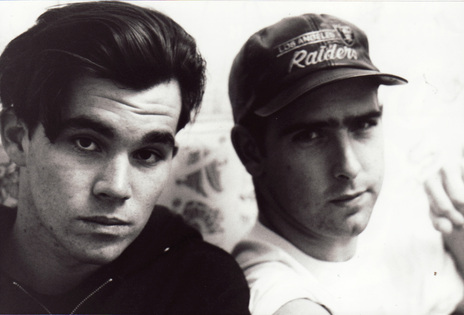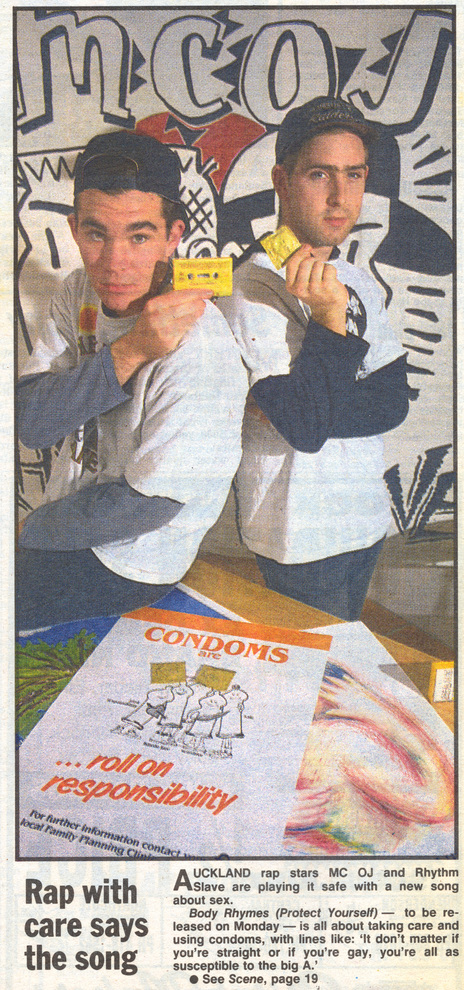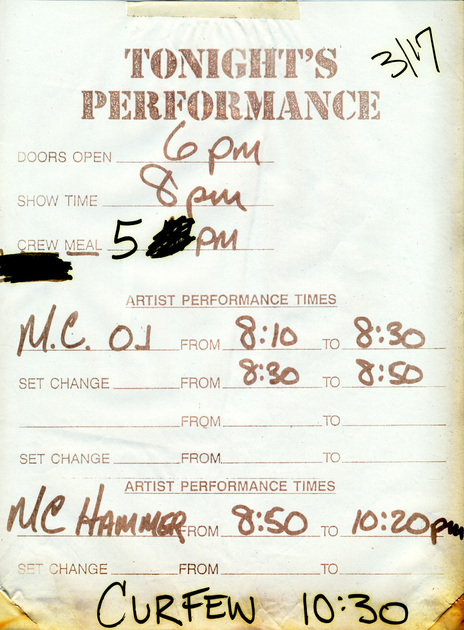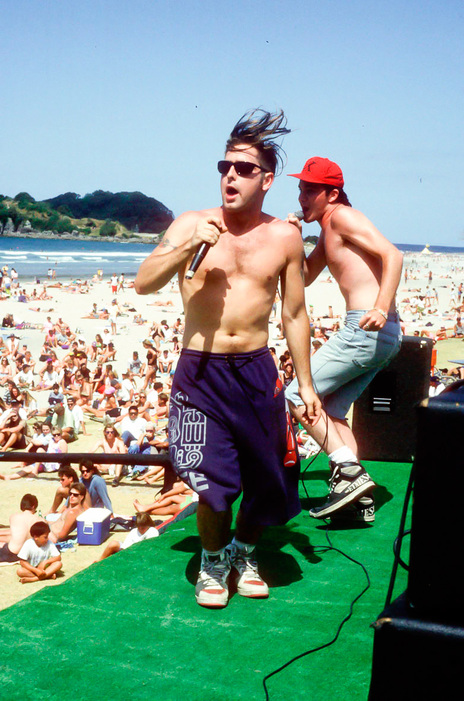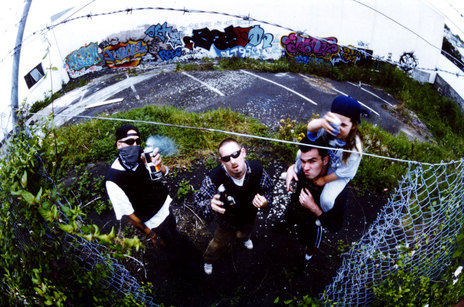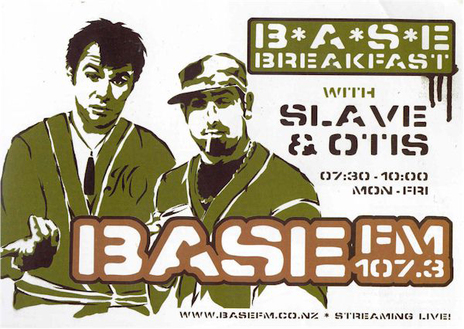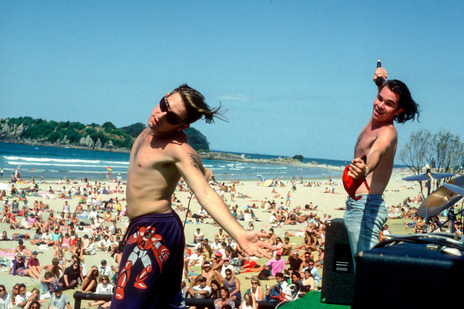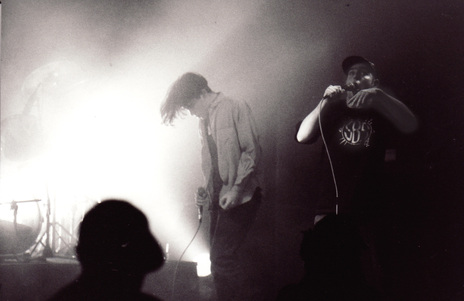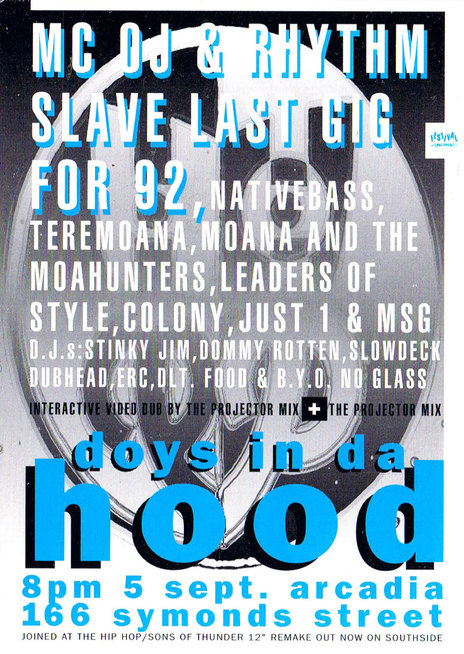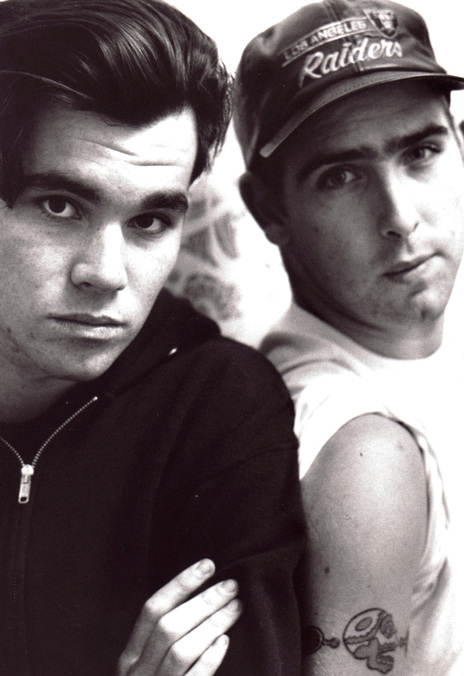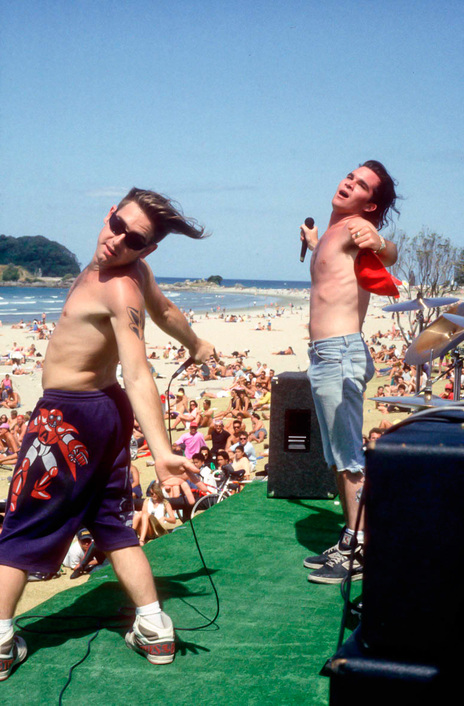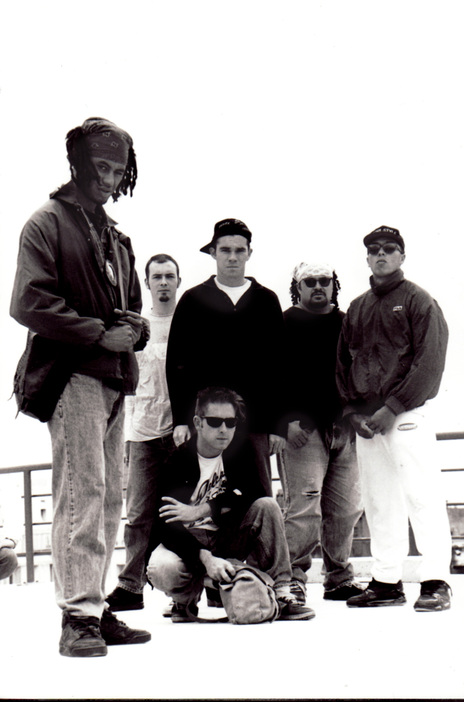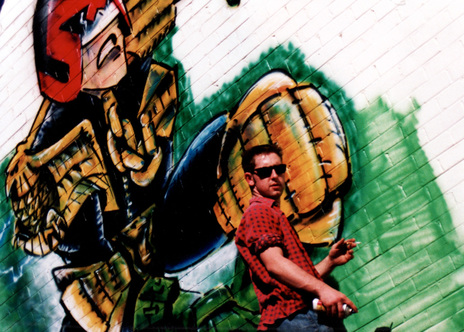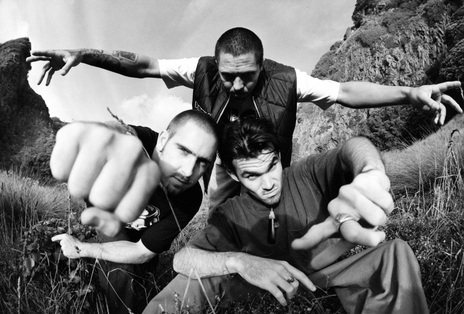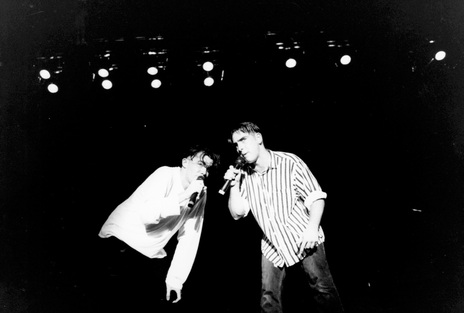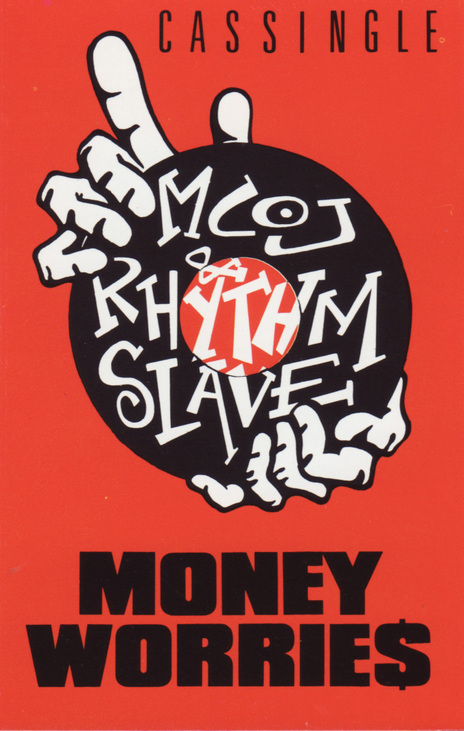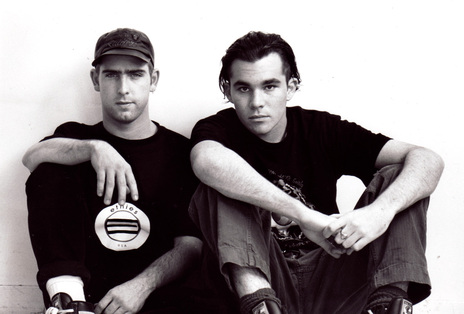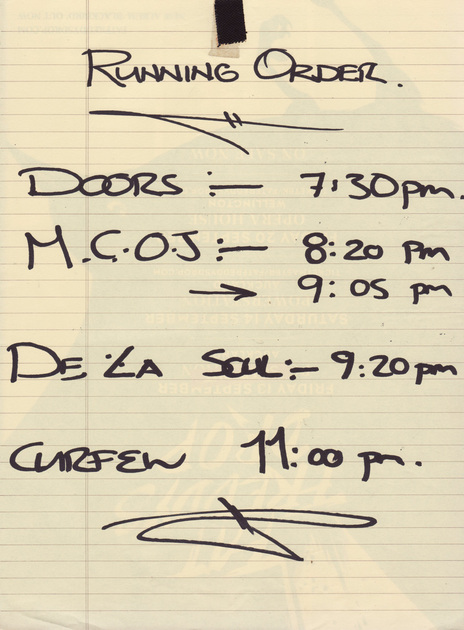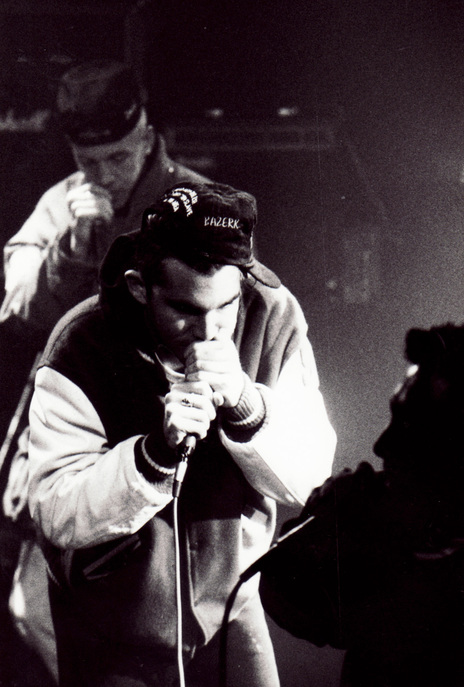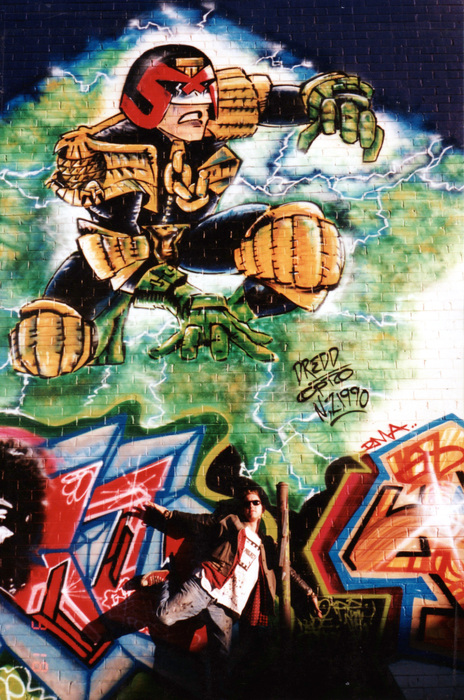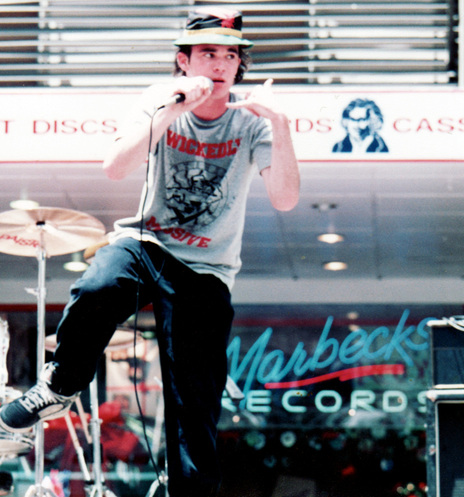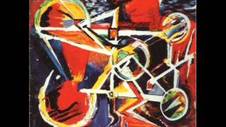At 13, Mark James Williams moved back to New Zealand from his dad’s hometown of San Francisco, already harbouring an early love of hip-hop. He only had a few days to acclimatise before he showed up as the new kid at Selwyn College and was introduced to his classmate Otis Frizzell, who was tasked with showing him around. Otis was the son of pop artist Dick Frizzell, although he was personally more interested in graffiti art, even if this meant teaching himself the art form from scratch.
The pair both played in school stage band – Mark was a drummer and Otis played sax, but they turned to hip-hop after hearing breakthrough acts like Run DMC (though they rapped about Dr Martens boots rather than Adidas). At first, they simply took turns at beat boxing to back each other’s rhymes and performed whenever they could – playing at house parties or convincing gig organisers to let them bust out a 15 minute set.
"We were shameless and we just kept coming back again and again. We were having too much fun to let anybody get us down."
– Mark "Slave" Williams
Mark remembers that it was the energy of their live show that was at the heart of their success. “We were shameless and we just kept coming back again and again. We were having too much fun to let anybody get us down. I think just by persevering with our stuff and doing gigs, we won people over. We had a good show – better than any record we did. We were young and hyperactive and jumped around like mad fucks onstage. We were just 18 when our first single came out, we’d only just left school.”
MC OJ and Rhythm Slave were signed to Southside Records after label owner Murray Cammick saw them play at Club Roma (under the Civic on Queen St). Drum machines and samplers were still rare in New Zealand, but they befriended George Hubbard, who managed Upper Hutt Posse and helped make the beats for their first album. They began writing songs with Hubbard and his musical collaborator, Daniel Barnes (who were known collectively as Rhythm and Business). This led to their first single, ‘Positivity (That’s The Way)’, which reached No.12 on the charts.
Their subsequent album What Can We Say? (1991), also had production from songwriting team Paul Casserly and Mark Tierney (Strawpeople) – most notably on their next Top 40 hit, ‘Money Worries’, which featured glam rocker Mikey Havoc from Push Push.
The station manager at 95bFM, Graeme Hill (AKA Graeme Humphreys), approached Mark about putting together a hip-hop show. DJ Sir-Vere (Phil Bell), Bass (Robert Rapana) and DLT (Darryl Thomson, previously the DJ from Upper Hutt Posse) were also brought on board to create the True School Hip Hop Show, which was a seedbed for many local acts, including P-Money. DLT had also played as a backing DJ for MC OJ and Rhythm Slave and as their friendship progressed the trio began making music together as Joint Force.
The other crucial collaborator on this new project was Angus McNaughton, who Mark and Otis met after doing repeated support slots for the Headless Chickens (McNaughton helped record their albums). McNaughton’s Incubator Studios became an experimentation zone for Joint Force and provided a crash course in production for DLT. The initial fruit of this work was Joint Force’s One Inch Punch EP, which reached No.21 on the NZ Singles Chart.
“Back then, people always said 'you’re just two white middle-class honkies, you can’t rap, it won’t work.' We were like, 'just watch'."
– Otis Frizzell
When DLT released his first solo album The True School, he featured Mark James on one of the tracks and arranged for him to tour in support of the release. However, it was DLT’s track with Che Fu, ‘Chains’, that would become a breakthrough hit. Mark and Otis largely retired from rapping after this, feeling more inspired to promote new acts rather than push their own material. Mark put together a landmark compilation of local hip-hop, Aotearoa Hip Hop Vol 1, acted as a regular host for the NZ hip-hop summit, and created an anti-GE track with Tom Bailey (Thompson Twins) that provided an early platform for the Deceptikonz and Nesian Mystik.
Meanwhile Otis turned his focus to his other love, graffiti art, and created a solid career around his work under the name “Opto”. The pair also created a TV programme, Mo’ Show (winner of Best Entertainment Series at the 2003 NZ TV Awards) and they continued to do radio DJing, eventually becoming the breakfast hosts on Base FM.
These days, Mark James is part of the touring party of Fat Freddy’s Drop and Otis is working on his Lucky Taco food truck, though he retains fond memories of their time at the top of the local hip-hop scene.
“Back then, people always said – you’re just two white middle-class honkies, you can’t rap, it won’t work. We were like – just watch. And that’s how we gained our place in the history of local rap music. There’s some fucking gems in our hip-hop careers, but we never expected that we’d blow up and be huge. We just wanted to have a lot of fun and we definitely succeeded in that respect.”
